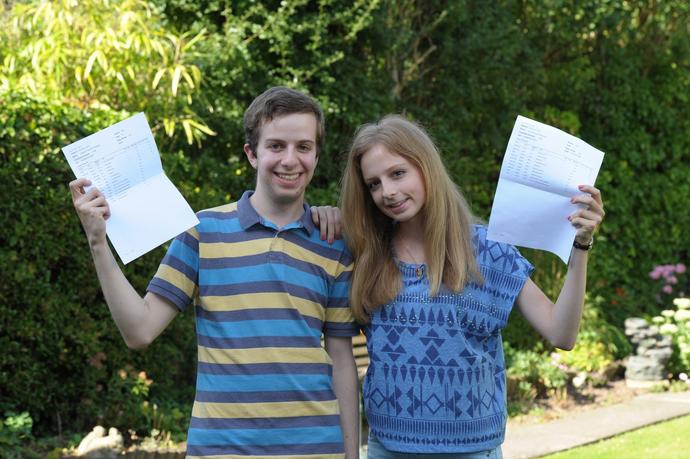
Sibling relationships are known to vary between different cases. They are often stereotyped to be tumultuous, and oftentimes confusing. Having a sibling means that one shares a similar genetic makeup with an individual other than a parent - a notion that may provide some insight into the cause of certain behaviours between siblings. Afterall, the Darwinian impulse to differentiate flares up, even in "good" sibling relationships.This may help explain why some siblings attempt to diverge from the pathways of their sibling. Although siblings may experience conflict, studies have shown that ultimately, having a sibling contributes positively to various skill sets and impacts future judgements and decision-making.
1) Siblings impact the career pathways chosen by younger siblings.
Modelling behaviour occurs between younger siblings and their older brothers and sisters. It is also noted that this modelling behaviour is stronger for girls, suggesting that sex does matter when discussing the impact of sibling relationships. Furthermore, modelling behaviour may explain why many siblings choose to go into the same career pathways.This has shown that the positive sibling relationship impacts the career pathway chosen by the younger sibling.

2) Having a sibling can positively affect one’s academic successes.
Having a sibling, especially an older sibling, positively contributes to academic success. The older sibling can share experiences and aid the younger sibling in their education, possibly even more so than a parent. Due to the age similarity, children are more likely to imitate and learn from their siblings rather than parents. Furthermore, older siblings often function as a source of support for the younger sibling, both academically, and socially.

3) Interactions with siblings allows one to develop communication and conflict resolution skills faster.
Having a sibling can positively influence one’s ability to develop relationships with the opposite sex. Children who grow up with an opposite-sex sibling tend to sense, understand, and converse better with the opposite sex. This sibling relationship improves the communication skills of the individual, through interactions with one’s brother or sister. Furthermore, children observe and model the individuals around them, as illustrated through the famous Bobo doll experiment by Albert Bandura. Since individuals in one’s family are the first people one interacts with, it is likely that a child will first imitate family members. Along with vicarious reinforcement from observing others, such as a sibling, an individual will develop communication and conflict resolution skills.

All in all, having a sibling contributes positively to various skill sets and impacts the choice of career pathways, scholastic performance, and social interactions. Of course, no all siblings get along, but promoting strong sibling bonds can be greatly beneficial for both family dynamics as well as one’s own development.
 Girl's Behavior
Girl's Behavior  Guy's Behavior
Guy's Behavior  Flirting
Flirting  Dating
Dating  Relationships
Relationships  Fashion & Beauty
Fashion & Beauty  Health & Fitness
Health & Fitness  Marriage & Weddings
Marriage & Weddings  Shopping & Gifts
Shopping & Gifts  Technology & Internet
Technology & Internet  Break Up & Divorce
Break Up & Divorce  Education & Career
Education & Career  Entertainment & Arts
Entertainment & Arts  Family & Friends
Family & Friends  Food & Beverage
Food & Beverage  Hobbies & Leisure
Hobbies & Leisure  Other
Other  Religion & Spirituality
Religion & Spirituality  Society & Politics
Society & Politics  Sports
Sports  Travel
Travel  Trending & News
Trending & News
Most Helpful Opinions